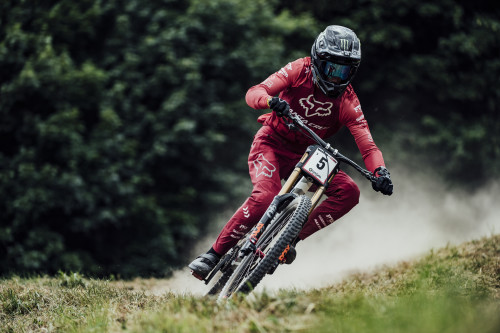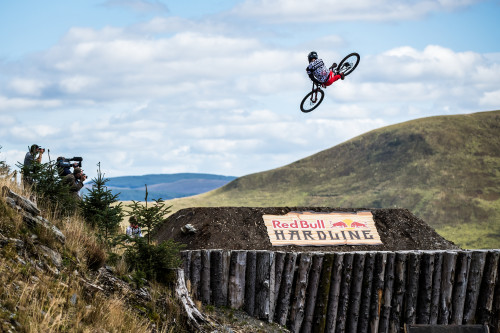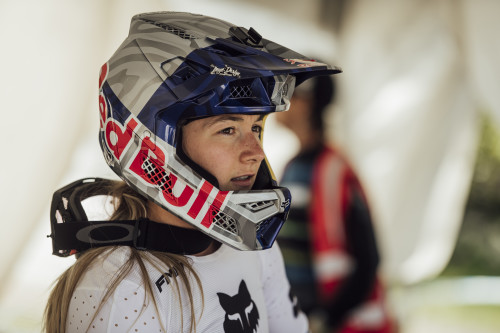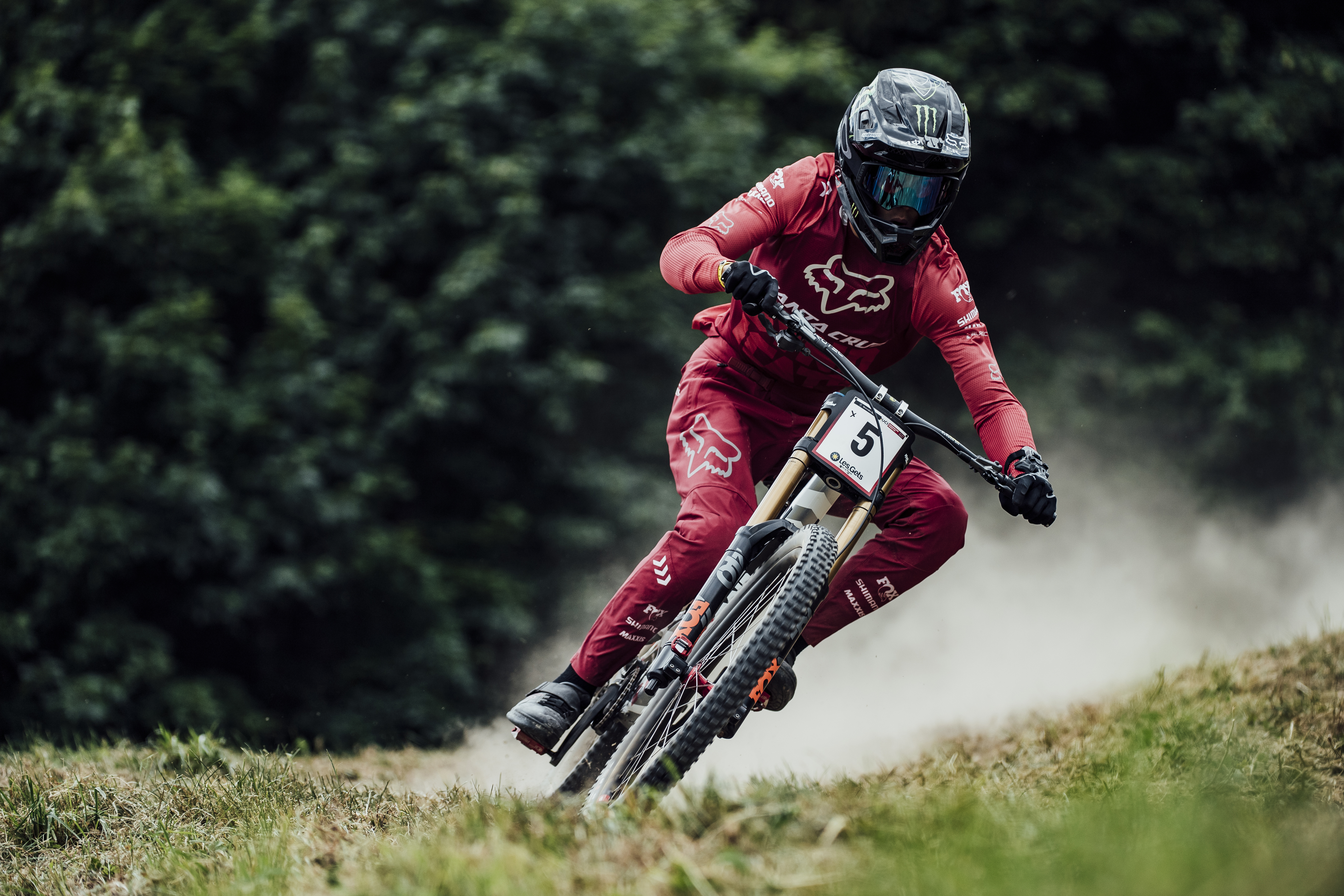The Hawthorne Effect – when an individual changes how they normally do something because the know they are being observed. It may be a phenomenon of sorts and surely affects individuals to different degrees and in different ways. As a concept it may or may not be even real but for your MTB performance it’s a useful anecdote to abuse.

When racing a MTB in the gravity disciplines your only true opponent, the enemy so to speak, is the clock. It also happens then, by default, that the clock is an “observer”. Furthermore, due to it’s unwavering objectivity, it’s also the harshest of observers. It doesn’t lie, sugar-coat it’s feedback nor strive for long-term improvements by giving you a short-term boost through white lies. The clock counts seconds and that’s that! Observers come in many shapes and forms in MTB, from fans track side to your friends behind you on a ride and they all could potentially feed into the “reactive” change in behavior that hallmarks the “Hawthorne Effect”. Just how many times have you messed a corner or jump up when your friends get the camera out?
Narrowing focus onto the power of the clock and we, or at least I, see how it steamrolls and amplifies it’s impact. The clock in all it’s beautiful objectivity becomes much more to the racer than minutes and milliseconds. The clocks unwavering ability to tell the truth amplifies the impact of all the other observers the racer knows are there. The opinions of others, based off what the clock says, all of a sudden become much more tangible. Fellow racers, family, the “fans”, the keyboard warriors, the rivals, your own sense of self and that inner ego monster!? The opinions of those individuals suddenly carry weight, they come backed by evidence. So as an exercise in humility and true emotional control, racing is the pinnacle. Excuses can be made but if that narrative doesn’t add up at least in part to the clocks story then time wins. You suck!
Now you may not experience any semblance of the Hawthorne Effect when you are put on the clock, or you may actually benefit like many racers do. I coach more than one rider who are that cliché “clutch performer” – they race better than they ride! In their case the clock and the added observer power that comes with it increases their potential to execute! They rise under pressure.
Many riders, of all levels, however experience variations of performance reduction due to being observed. Whether by the clock, friends or otherwise. The motivation that others garner from that objective observer counting in seconds & minutes slips and becomes a massive hindrance. As a result, some riders choke, perform worse, can no longer control emotions nor feelings. Everything and nothing can overwhelm them and the desire to protect your own image of themselves, their ego, takes over. The reaction to observation leads to negative outcomes.

A solution you ask? Routine! If you’ve worked with me as coach then “routines” would become a commonplace talking point. Often rearing it’s head as the “process”. Control the controllable and focus on the actions that lead to good outcomes not the outcome itself. But that whole performance paradigm – based on a process focus – can miss the simple power of specific routine. Specific routines for specific situations. The easiest to describe is a race day routine. As that’s often when the clock mediated Hawthorne Effect rears it’s ugly head. Race day will always be on a schedule. Your start-time being the cornerstone. Everything else works toward that moment. You know you are going to be “observed” in one way or another so deal with it! While the scrutiny on offer may change depending on the race or venue or many other variables your routine can stay the same and with that you can perform as close to optimal as possible.

Without a routine the only defense you have against the negative impacts of expectation and scrutiny are your own thoughts and mental skills, while you may be lucky to have a strong character or have developed even effective coping skills to deal with race day “nerves”, on their own as your sole strategy to craft a race day performance, they are energy consuming and potentially wasteful. The “routine” approach gives you a seamless and effective strategy that consumes minimal energy because it becomes process.
Routine – a DH race day example
Morning Practice – two runs; key sections to work on, line focused not “feeling” focused – or vice-versa!
Post Practice – hydrate, relax, de-brief with friends, coach, mechanic, adjust race run plan based on practice knowledge
Downtime – occupy yourself with something else, shit-talk, coffee, relaxation, massage etc…
Meal time – set a specific time and type of meal – keep it enjoyable but effective
Warm-Up – specific start time for Warm-Up – content set, specific to needs and track demands.
Music – playlist for warm-up
Your Mantra – repeat to yourself your pre-race mantra as needed starting with four minutes to start – e.g. “enjoy executing”!
The above may seem rigid, but it’s simply an idea, the key is to have a routine in place, it can be anything you want, have any focus, as long as it’s pre-planned and timed to allow you to control the key variables that you know matter to your performance come race run.
Without a plan, the pressure created by the observation of others can crack you. Worse again without a plan you may find yourself at the mercy of your emotions, lead by feelings that can severely impact performance…. doubt, fear, vulnerability, irritability etc… these feelings can take over. They then occupy the “working memory” in our brain and make what should be simple pre-race tasks feel monumental. Secondary to that, this hyper-emotional state means we feel our movements internally, so instead of riding like you can, you force it and try to make yourself ride like you want to. The end result is poor performance, constrained by knowing that no matter what; your performance is on the clock and all eyes are on that same clock.
Whether the Hawthorne Effect actually exists is largely irrelevant, it’s just helps us give a name to race day and riding situations we have all faced. Most importantly if something has a name then it becomes more tangible. If you can define it you can defeat it.

